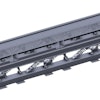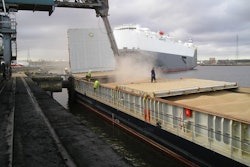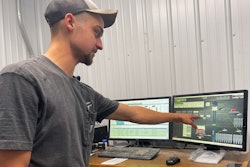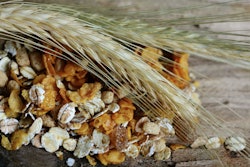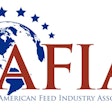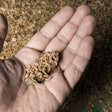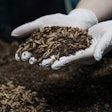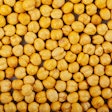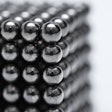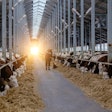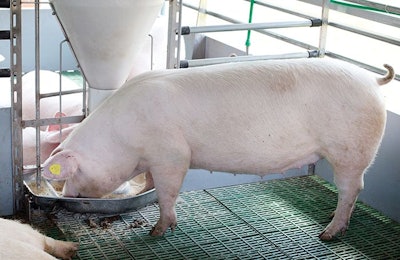
As the agricultural industry continues to evolve,precision nutritionhas emerged as a promising approach to optimize animal health and performance. According to marketing claims, by tailoring diets and feeding strategies to the specific nutritional requirements of each animal, or group of animals, precision nutrition aims toenhance efficiency, reduce environmental impact, and improve overall animal welfare.
While this approach has garnered significant attention and positive outcomes, especially in the media world, it is essential to critically examine potential negative aspects that may arise from implementing precision animal nutrition. It is better to find any such potential negative aspects ourselves as an industry before they get pointed to us by outsiders with a different agenda.
In this article, we delve into these concerns to foster a balanced understanding of the topic and hopefully to open the discussion for more deliberation.
Overreliance on technology
One of the primary concerns associated with precision animal nutrition can be the overreliance on technology. As is well known, precision nutrition heavily relies on advanced data collection methods, such as sensors, monitoring devices and artificial intelligence algorithms, to assess an animal’s nutritional needs accurately.
However, a potential drawback is the risk of technology failures or errors. If a system malfunctions or data inaccuracies occur, it can lead to incorrect feeding recommendations and ultimately affect animal health and productivity. In addition, the algorithms and models can be only as precise and accurate as the initial data based on which they were developed. Thus, one can question even the roots of this novel approach.
Complexity and cost
The implementation of precision animal nutrition involves complex systems, including the collection and analysis of vast amounts of data, computational modeling and formulation adjustments. This complexity requires significant financial investments in equipment, software and training.
Smaller-scale animal producers with limited resources will find it challenging to adopt precision nutrition due to the high initial costs and ongoing maintenance expenses. This could exacerbate existing disparities within the industry and hinder widespread adoption. Eventually, the feed industry as a whole may lose as its customer base shrinks due to unnecessary competition among its clientele.
Potential for over-optimization
We understand that precision nutrition seeks to optimize animal diets to achieve maximum performance and efficiency. However, there is a potential risk of over-optimization, where animals are pushed beyond their natural physiological limits – such are the risks of over-reliance on modeling systems.
Is it possible for over-optimized diets to maximize productivity in the short term but lead to long-term negative consequences? For instance, focusing solely on growth and production could compromise animal health, immunity and longevity, leading to increased susceptibility to diseases and reduced overall welfare. This may be more or less important for certain species and thus it needs to be examined from a different perspective.
Are we forgetting gut health?
While precision animal nutrition aims to meet specific nutritional requirements per se, there is a risk of neglecting the importance of gut health. The gut microbiota plays a crucial role in nutrient utilization, immune function, and overall well-being.
Overly precise diets that solely focus on specific nutrient ratios may disrupt the delicate balance of the gut microbiome, leading to digestive disorders and impaired nutrient absorption. Therefore, it is crucial to strike a balance between precision and maintaining a healthy gut microbial community. To this end, algorithms that encompass both aspects need to be developed to ensure the work done in the past 30 years is not ignored when it comes to gut health.
Environmental consideration
Is it possible that, although precision nutrition strives to reduce environmental impact, certain aspects of its implementation can pose potential negative consequences? The use of high-precision feed formulations and additives, while optimizing animal performance, may result in an increased demand for resources such as energy, water and land.
Additionally, precision nutrition may promote the use of novel ingredients or additives that require extensive production and processing, potentially contributing to unsustainable agricultural practices or ecological imbalances. This is in contrast to modern times, where sustainability has become the key word in all conversations.
Ethical concerns
While precision nutrition can lead to improved animal welfare by better meeting their nutritional needs, it may also raise ethical concerns by certain interested groups. The focus on precision and optimization may overlook the importance of animal autonomy and natural behavior.
Animals kept in highly controlled environments with precise diets may be considered deprived of the ability to express their innate feeding preferences, exhibit foraging behaviors, or engage in normal social interactions. Balancing precision nutrition with ensuring the welfare of animals and communicating such endeavors to the general public should remain on the top of our agenda as an industry.
Precise is not always accurate
Some may criticize the fact that precision does not mean something is necessarily correct or accurate. Someone can be wrong consistently and this is precision. If we accept that we know how to accurately feed animals and then it only remains for us to do so with accurate precision, then we can be easily proven wrong as our collective body of evidence is based on research and empirical experiences that often are far from being either accurate or precise. Who can claim they are never wrong?
Conclusion
Precision animal nutrition has the potential to revolutionize the animal nutrition industry by optimizing animal health and performance, and even promote environmental sustainability. However, it is essential to consider proactively and address promptly any possible negative aspects associated with this approach.
从过度依赖技术潜力optimization and ethical concerns, a holistic view is necessary to ensure the long-term welfare and sustainable development of precision animal nutrition. By striking a balance between precision and natural physiological processes, we can harness the benefits while mitigating the potential drawbacks, promoting a responsible and welfare-conscious approach to animal nutrition.
We should never forget that there are always interested parties that seek to benefit from any mishap in the animal industry.



